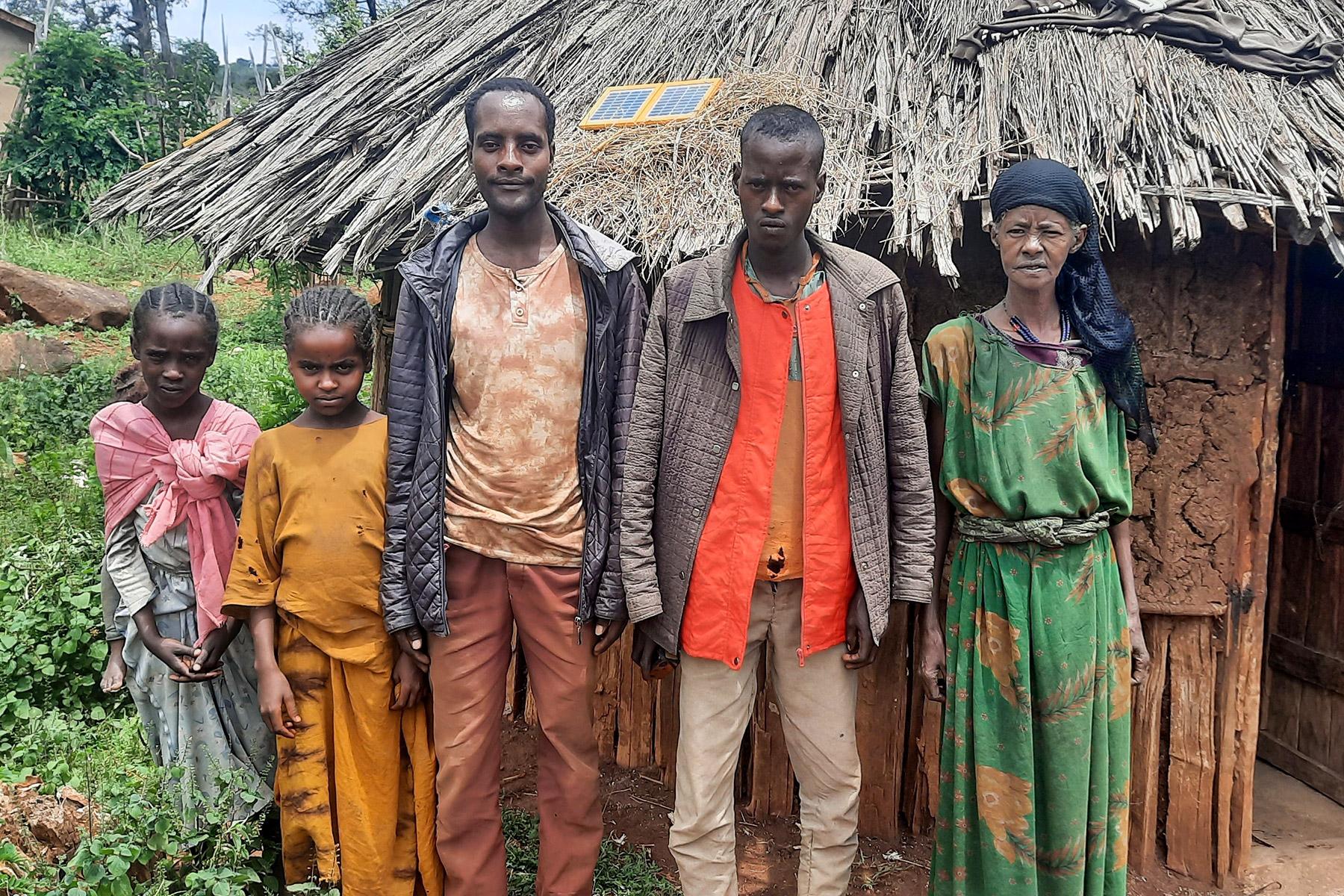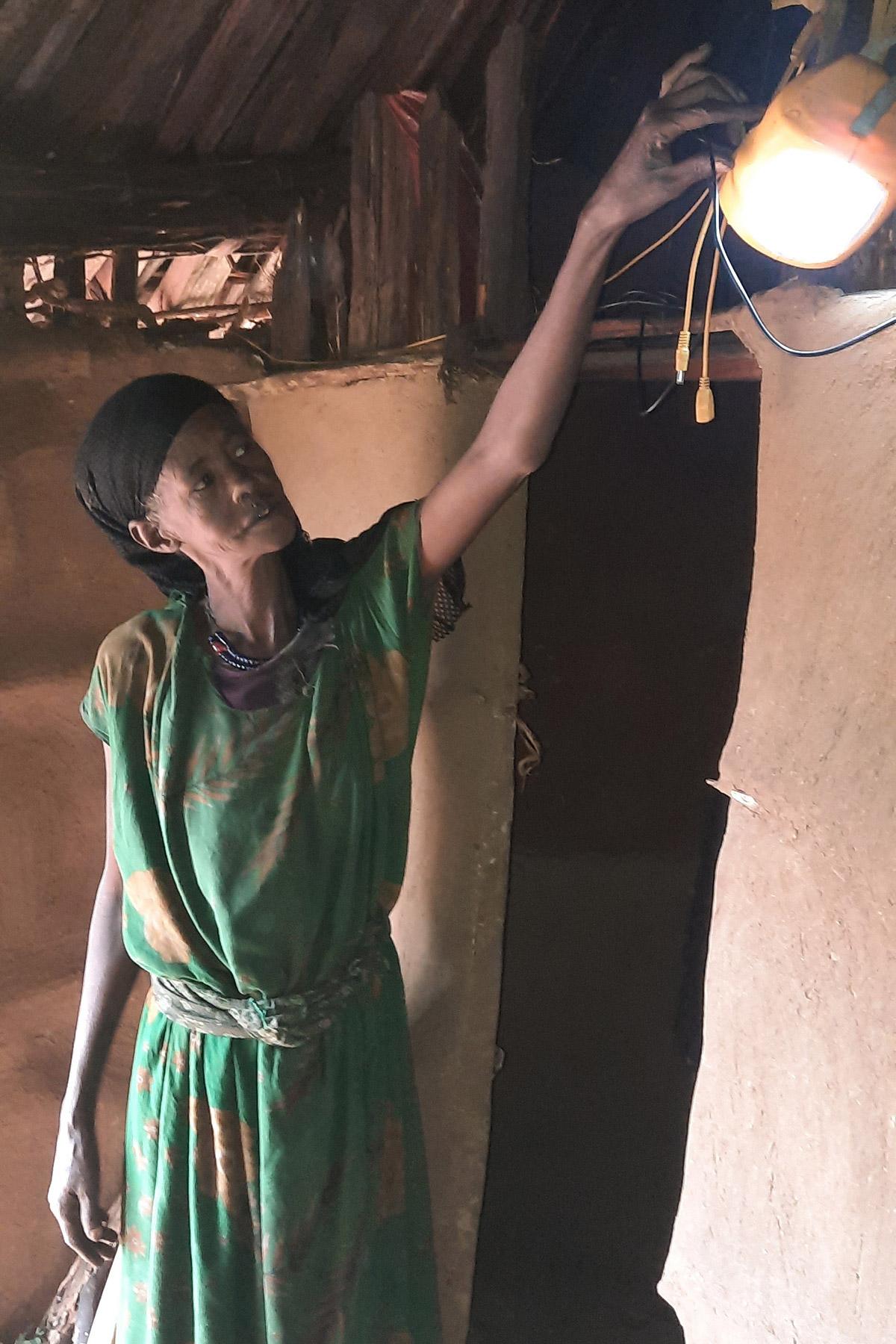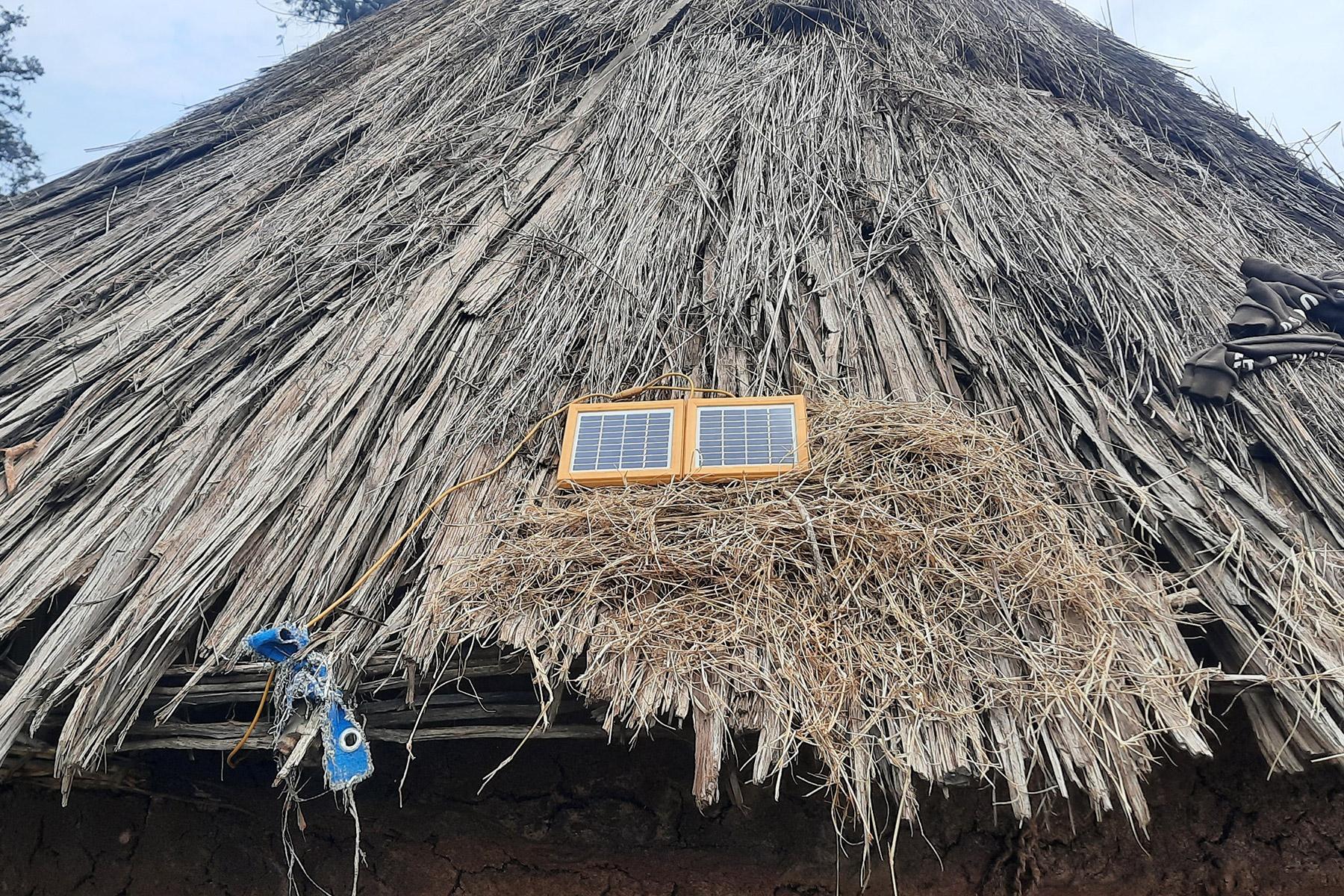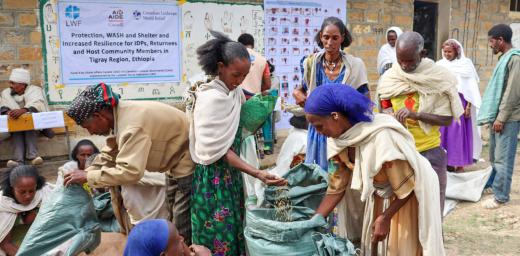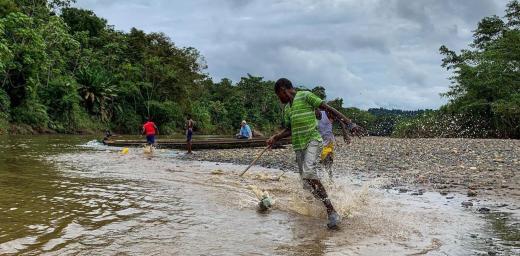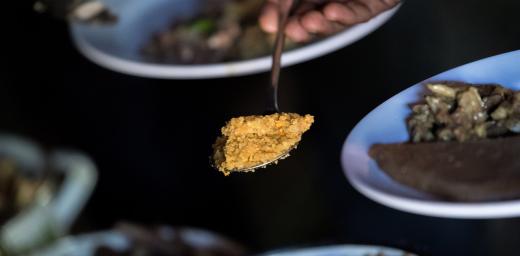From darkness into the light
(LWI) - "For the first time in my life, I still have light at 11 pm," says Rukiya Mohamed, pointing to a solar-powered lantern in her traditional home. The 55-year-old woman lives in one of the 57 households in Ethiopia's Oromia province that have received a solar panel and lamp from The Lutheran World Federation (LWF). The photovoltaic cells introduce a green energy source to rural communities and relieve the financial burden on low-income households.


